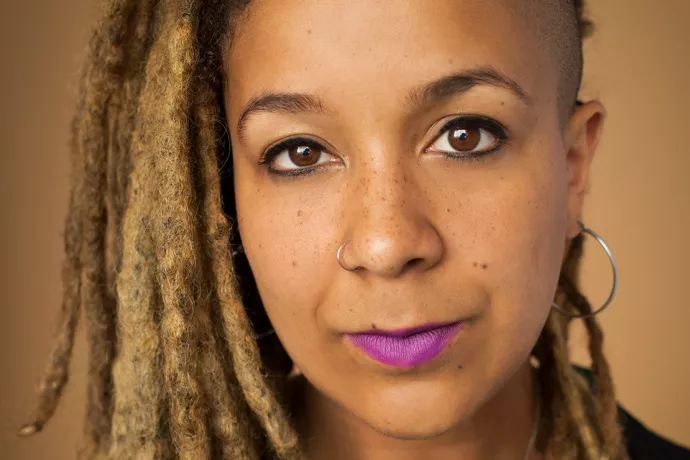
Post ‘police and prisons’ era will be the focus of 2020 Snider Lecture
After a summer of protests against racist dehumanization across the world, author Robyn Maynard will zero in on “what is next” for police and prisons at the annual Snider Lecture.
The lecture, Abolish the Police, Abolish Prisons: Black Liberation in a Time of Revolt comes as public discourse focuses more on learning about the past injustices that Canadians like Maynard knew about all along. Even as a teenager in Montreal, her everyday experiences were affected by racial profiling. She began her activism by distributing Refuse to Be Abused guides to households in her Caribbean-dominated neighbourhood so people knew their rights. Maynard has been a part of grassroots movements against racial profiling, police violence, detention and deportation for more than a decade.
Maynard is best known as the author of the best-selling 2017 book Policing Black Lives: State Violence in Canada from Slavery to the Present. She will speak via Zoom on Tuesday, Oct. 6 from 7 to 8 p.m. Maynard will address the ways that processes of captivity and surveillance have been embedded within Canadian state institutions for four centuries, while providing a critique of policing and prisons as forms of racial and gendered violence.
“There is a renewed desire to understand these historical injustices,” Maynard says, pointing to the number of current best-selling books by Black and Indigenous writers.
Policing Black Lives seamlessly articulates the relationship - and distinctions - between settler colonialism and anti-Blackness, centering Black women, trans and gender nonconforming people within the broader narrative. The book explores parallels between state violence in Canada and the United States, as well as the unique legal, social and historical forces informing criminalization through segregation, surveillance, carding, the school-to-prison pipeline and countless other ingrained practices.
Three years after her book was published, she sees people seeking context during this “crescendo of Black Lives Matter,” including protests in Canadian cities. Her writing on anti-Black racism is taught widely in universities across Canada and the United States. She has also spoken before Parliamentary subcommittees on these issues.
“Public safety doesn’t have to rely on prisons and police,” Maynard says. “There are so many beautiful alternatives that never got off the ground.”
She notes that many of the ideas in discussion now arise from the work of countless Black and Indigenous activists: defunding police officers in schools and diverting money to classroom resources; sending mental-health workers to crises rather than armed officers; and the end of criminalization of people experiencing homelessness and poverty.
She aims to do more than just educate students and faculty who tune in for the lecture.
“I hope to inspire them to take action, large or small, in these growing struggles,” Maynard says. “We need to look at things that were taken for granted (such as a perceived need for police presence in schools) that students genuinely need.”
Maynard is now working towards a PhD at the University of Toronto while researching and writing her next book.
